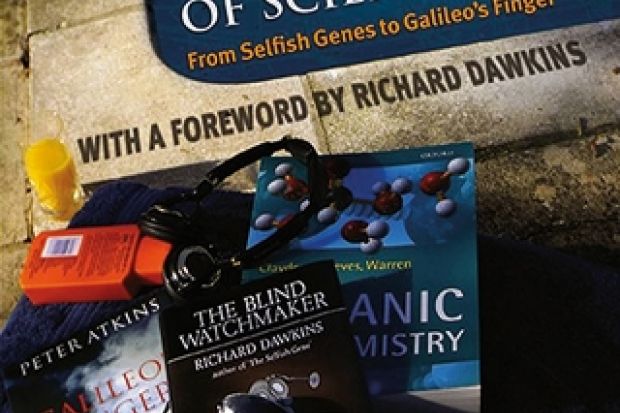Early in 1976, word got around New College, Oxford that a young chap called Dawkins was writing a popular book. An editor at Oxford University Press received a wonderfully offhand note from another New College don who was one of the press’ guiding lights – a Delegate in their terms – suggesting that he hoped the book would be like Desmond Morris’ The Naked Ape. However, it wasn’t exactly a recommendation for Dawkins’ own effort: “I have no idea whether he or it is any good but it might be worth looking into. I got the impression he is looking for a publisher.”
He found one. The editor, Michael Rodgers, was immediately gripped by the manuscript, and title, of The Selfish Gene. One of the most rewarding chapters of his own book recounts the tense spell while he had the science checked out, as OUP required, while working to steer Dawkins away from other potential suitors. The deal was done, the book became a huge success, and it reinforced Rodgers’ interest in the possibilities of popular science.
That was pretty unusual in 1976, as this commendably modest memoir of a publishing career reminds us. Steven Weinberg’s landmark account of modern cosmology, The First Three Minutes: A Modern View of the Origin of the Universe, appeared the following year, but it was another decade before Stephen Hawking’s A Brief History of Time really established the fact that big scientific ideas could lead to big-selling books that (for a while) could command seven-figure advances.
Rodgers’ employer was never in that market, but in a succession of jobs with OUP and others he played his part in re-establishing pop-science as a viable genre. He worked mainly for old firms that mixed academic with trade publishing – the latter mostly marginal. Along the way, he nurtured many textbooks, most notably Peter Atkins and Julio de Paula’s enduring market leader Physical Chemistry, and a clutch of notable popular authors, including Atkins himself, John Emsley and Nick Lane.
There is much diverting detail on the nitty-gritty of publishing in Rodgers’ chapters, although some crucial items have gone missing. It is frustrating that he recalls writing a strategic plan for Longman’s science division in the early 1980s, but not what it said. I would also have liked more about the actual business of editing. The fact that he became firm friends with Dawkins and went on to edit a succession of his later titles, and was even brought in as a freelance by another publisher, suggests he was rather good at it, but apart from saying that it is important to tell authors when to slow down their explanations, he doesn’t give much away.
Rodgers seems more interested in the vicissitudes of publishing life. Never drawn to management, he remains excited by ideas and sticks to the role of commissioning editor more or less throughout the span the book covers – but he is also made redundant an impressive number of times when corporations shift their priorities. Despite that, his is a record mainly of successes, and he has a good word for (almost) everybody.
This amiable little book will not give you much insight into how the business of publishing is evolving now – for that you’ll need John B. Thompson’s Merchants of Culture: The Publishing Business in the Twenty-First Century. But it is a useful source on what life used to be like in the world of serious people working to help serve serious readers, and sometimes succeeding beyond their expectations.
Publishing and the Advancement of Science – From Selfish Genes to Galileo’s Finger
By Michael Rodgers
Imperial College Press, 200pp, £50.00, £25.00 and £19.00
ISBN 9781783263707, 3714 and 3738 (e-book)
Published 21 March 2014
Register to continue
Why register?
- Registration is free and only takes a moment
- Once registered, you can read 3 articles a month
- Sign up for our newsletter
Subscribe
Or subscribe for unlimited access to:
- Unlimited access to news, views, insights & reviews
- Digital editions
- Digital access to THE’s university and college rankings analysis
Already registered or a current subscriber? Login





